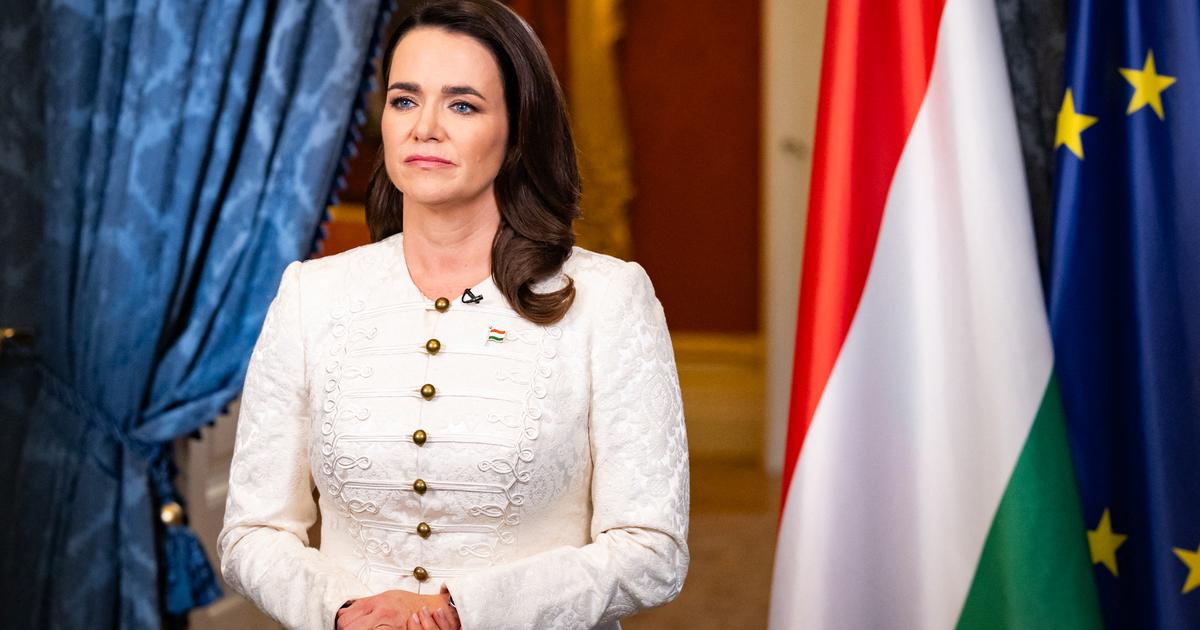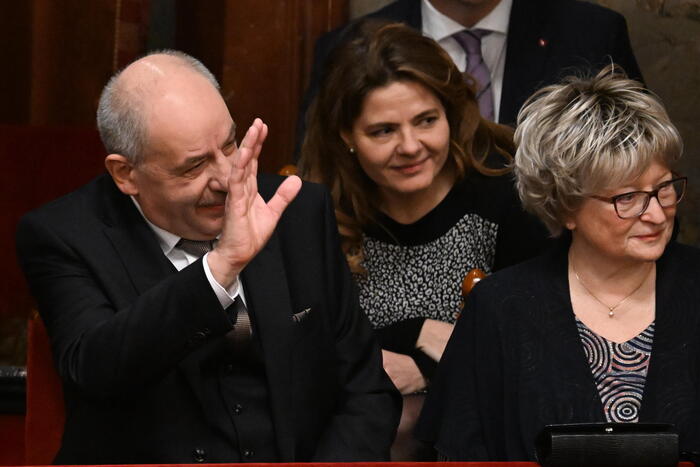Álvaro Bernis.
A Roman emperor uncovers a conspiracy. His friends planned to stab him. The emperor does not know how to react. Do you punish them? Do you forgive them? If you pardon them, you risk another attempt to overthrow or assassinate you. If you punish them, you risk fueling the cycle of grievances and revenge. “Whoever forgives easily invites to be offended. Let us punish the murderer, let us ban the accomplices ”, says Octavio César Augusto. Then he thinks better of it and regrets: “Always more blood and more torture. No way!".
It's all in the classics, according to a rarely denied cliché.
And many of the doubts that any ruler faces when pardoning those who have violated the law are found in
Cinna or the clemency of Augustus
, the tragedy of Pierre Corneille premiered in 1641. The dilemmas of the Roman emperor were not so different from those that are These days are asking the President of the Spanish Government, Pedro Sánchez, when deciding whether to pardon the Catalan independence leaders sentenced to prison for the illegal secession attempt in 2017.
Catalan politicians JoaquimForn, Raül Romeva and Oriol Junqueras, accused of sedition, in the Supreme Court during the trial (2019) Emilio Naranjo / Getty Images
"The right of grace is a legal rarity: in democratic states there are sufficiently refined mechanisms to deal with judicial error, the mitigation of penalties or the notion of forgiveness," says William Julié, a criminal lawyer and specialist in international issues, in Paris. “Now, justice is not infallible, the texts are not perfect and their application even less. In a system that works, keeping a safety valve may ultimately serve to maintain a balance. "
Can forgiveness or pardon be understood as a humanitarian gesture? Or do they hide spurious motives? The world of the 21st century offers examples of both cases. The first could include the grace - as they say in French - that French President François Hollande granted in 2016 to Jacqueline Sauvage, sentenced to 10 years in prison for killing an abusive husband. In the second, the practice of American presidents of pardoning associates, friends and relatives. "I have the absolute right to forgive myself," Donald Trump went on to say, haunted by multiple scandals that could, and can, lead to legal proceedings.
"In America, the power of presidential pardon has been traditionally used to show compassion for an individual punished unjustly, or as a
tool in statecraft ,
" he explains in an email Jeffrey Crouch, author of
The Presidential Pardon Power
(Power presidential pardon), reference book on the issue.
"The framers of the Constitution decided that the president was the right person to trust with the ability to grant clemency, and that he would have to answer to the public for his decisions," adds Crouch of the American University in Washington.
Exultant President Donald Trump celebrates his acquittal after the impeachment process.
In Washington, February 6, 2020.NICHOLAS KAMM / AFP via Getty Images
Trump, president from 2017 to 2021, used and abused forgiveness, as did some of his predecessors, Crouch recalls. But he turned it - and that was unique - into a reality show, from the suspense about the candidates to the final decision to pardon them. "Forgiveness today is largely a relic of an ancient system in which the king exercised mercy in a God-like way," says Bernadette Meyler, Professor of Law and Literature at Stanford University and author from California. by
Theaters of Pardoning
(Theaters of forgiveness), where he studies the theatrical aspect of all pardons from the works of William Shakespeare and the English theater of the seventeenth century. "But I think it is possible to integrate forgiveness into a democratic system with some reforms," he adds, and cites the possibility of involving Parliament as happens in many countries with amnesty.
The dilemma that plagued Augustus in the Corneille tragedy is relevant in Spain: does forgiveness incite the beneficiary of clemency to go back to his old ways? Or can it pacify a troubled society? "Forgiveness is the nurse of a new crime," warns a character
in Shakespeare's
Measure for Measure
. Alexander Hamilton, one of the founding fathers of the United States, clarified in the
Federalist Papers
: “In cases of insurrection or rebellion, there are often critical moments in which a timely offer of pardon for insurgents or rebels can restore the tranquility of the community".
Pardon, pardon, grace: each language has its way of saying it.
All refer to an archaic practice: that of the sovereign "capable of being merciful, in imitation of God", as the historian Jacques Le Goff wrote in
Saint Louis
, the monumental biography that he dedicated to the French king.
One of the most passionate debates among the legislators who wrote the Constitution of the United States in 1787 revolved around pardon: they did not want to reproduce the vices of the Old Regime and there were few as serious as that of the divine right monarch above the law.
The newspaper 'Le Petit Parisien' portrayed Dreyfus being interrogated on the front page (1899). Leemage / Universal Images Group via Getty
"The president should not have the power to forgive, because often he could forgive crimes that he himself had advised to commit," argued George Mason, delegate from Virginia. James Madison, who would be president of the United States, proposed that, in cases of treason, Congress should be responsible for pardoning and not the president.
Hamilton admitted the risk of a traitorous president forgiving himself. What led him to defend the pardon was the conviction, expressed in the text already cited, that it could be useful to reconcile a country after a rebellion or insurrection. Almost a century later, on Christmas 1868, President Andrew Johnson granted a pardon and full amnesty to the participants in the rebellion of the slave states in 1860 and 1861, the origin of the civil war or secession, which had ended in 1865 with the victory of the Union. One of those pardoned was Jefferson Davis, president of the Confederacy.
"Forgiveness and amnesty processes, if done properly, can help repair a society," admits Professor Meyler. After the civil war, however, it was more complicated. Meyler explains that during Reconstruction, the brief period in which attempts were made to promote a certain racial equality in the South, newly freed slaves were able to gain land ownership for the first time. But pardons and amnesties for the Confederates frustrated this possibility, as they allowed the old owners to recover their lands to the detriment of the blacks. "Since then," he adds, "there is a legacy of oppression that comes from pardons and their consequences." The reconciliation was a mirage; segregation replaced slavery.
The willingness to heal wounds would inspire another American president, Gerald Ford, in 1974 pardoning his predecessor, Richard Nixon, for his role in the Watergate scandal. "My conscience," argued Ford, "tells me that it is my duty not only to proclaim domestic tranquility, but to use all means to guarantee it." Two years later, he lost the presidential election to Jimmy Carter. General Charles de Gaulle - the man who led the fight against the occupier during World War II - faced the dilemma after the liberation of Paris in the summer of 1944. As President of the Provisional Government, he could pardon those who had betrayed France and they had thrown it into Hitler's hands. Or deny clemency because, as Albert Camus wrote, “forgiveness (…) today would have the air of injury”.
On August 9, 1974, Republican President Richard Nixon announces his resignation from the White House following the Watergate scandal.
In February 1945, and despite the request of some of the great writers of the time —among them, Camus, opposed to pardon, but even more so to the death penalty—, de Gaulle allowed the execution of the Nazi writer Robert Brasillach. In August of the same year, Marshal Philippe Pétain, leader of collaborationist France between 1940 and 1944, was sentenced to death. De Gaulle commuted his sentence and Pétain spent the rest of his days locked up in a military fort on the Isle of Yeu, off the Atlantic coast. "Hasn't the time come to draw the veil, to forget the times when the French did not love each other and even killed each other?" President Georges Pompidou would justify in 1972 the pardon of the collaborator Paul Touvier.
Australian jurist Daniel Pascoe, co-editor of
Executive Clemency. Comparative and Empirical Perspectives
, explains that if the most advanced democracies maintain the power of pardon, it is because “it remains one of the key attributes of sovereignty, such as declaring war, establishing diplomatic relations or signing treaties, and democracies also need to project their sovereignty in some way ”. “Legislative and constitutional inertia,” adds Pascoe of Hong Kong City University, “means that most democracies have retained the power to forgive out of habit, even after the abolition of the monarchy, and if the power remains in force , policy makers will find opportunities to use it ”.
The mathematician Alan Turing, inventor of the Nazi code-breaking machine, was posthumously pardoned by Elizabeth II. He had been convicted of a homosexual relationship in 1952. Alamy / CORDON PRESS / Alamy Stock Photo
Shakespeare said in
The Merchant of Venice
: "Mercy blesses whoever gives it and whoever receives it." Is not always that way. Cases like that of Pompidou and Touvier, who in the 1990s would end up convicted of crimes against humanity, do not magnify anyone. At other times it was different. One is the presidential grace in 1899 for Alfred Dreyfus, unjustly accused of espionage: rather than redeeming the condemned, the pardon was intended to redeem France that had sentenced an innocent without evidence and with an anti-Semitic spirit. Another is Elizabeth II's posthumous pardon in 2013 for mathematician Alan Turing, pioneer of artificial intelligence, inventor of the machine that cracked Nazi codes during the war and convicted in 1952 of a homosexual relationship.
As with Dreyfus, the roles are reversed.
The United Kingdom or France pardon or pardon Turing or Dreyfus;
in fact, it should be Turing and Dreyfus who decide whether to forgive (or pardon) the United Kingdom or France for the damage caused.
Subscribe here
to the weekly Ideas newsletter.















